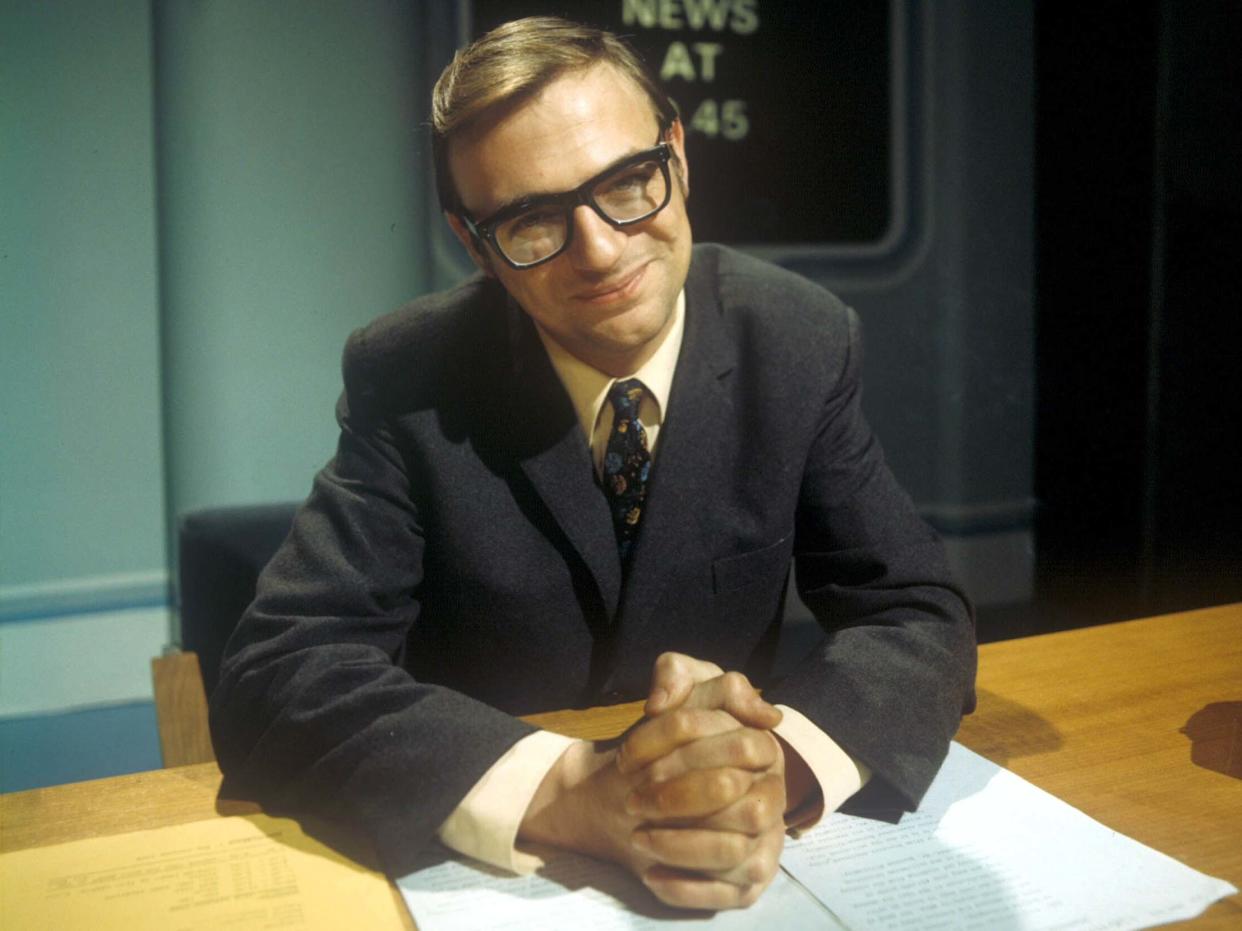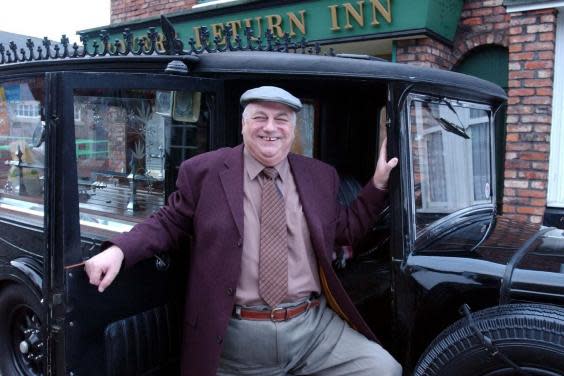Roy Hudd: TV and radio comedy stalwart adept at cheering up the nation

Roy Hudd worked hard to maintain a safe place in the nation’s affections for more than 40 years. He progressed from face-pulling, guitar-strumming beanpole in the 1960s to rotund character actor, panto stalwart and tireless music-hall archivist in more recent times. He once said that he enjoyed stretching himself, so long as the elastic didn’t break.
Born in Croydon in 1936, Hudd was brought up by his grandmother, Alice Barham, after his mother took her own life when he was little. It was Hudd’s choice to live with his gran rather than his father, a painter and decorator, who remarried and moved to Kent. She fostered young Roy’s interest in the world of showbiz by taking him to Croydon Empire to see the great variety acts of the time: Max Wall, Sandy Powell, Max Miller, Flanagan and Allen, and Jimmy James.
A year after his grandmother’s death, Hudd did his national service, working as an RAF telephonist at Waterbeach, near Cambridge. He had already experimented with comedy routines as an enthusiastic member of a boys’ club concert party. Michael Bentine, already established by then, told him he should do it for a living.
It was playing banjo and singing in the RAF station’s trad jazz band that set him on the path to becoming a professional. Working at Butlins in Clacton, Essex, in the mid-1950s, one of his fellow Redcoats was a nice-looking lad with a fashionable quiff named Harry Webb, whose career took a turn for the better when he changed his name to Cliff Richard.
Hudd was already married by then to dance teacher Ann Lambert who believed he was talented enough to give up the day jobs – commercial lettering, doing window displays, shovelling sugar at a chocolate factory – and become a full-time entertainer. He got his first TV break with an early ITV sitcom, Tell It to the Marines, in 1960, followed a few years later by Not So Much a Programme, More a Way of Life, the successor to That Was the Week That Was.
But it was a long-running series of TV commercials for Lyon’s tea bags, in which he played a leery sergeant major, that established Hudd in the public consciousness and gave him the longed-for financial security to buy a house and branch out into legitimate drama. He went on to play Pistol in Henry V, and a brace of Stoppard roles, including Rosencrantz and Guildenstern Are Dead, at the Young Vic when it was run by Frank Dunlop.
He returned to TV in the late 1960s with his own series, The Illustrated Weekly Hudd, followed by The Roy Hudd Show, in which he managed to combine topical comedy with his love of variety. Though it wasn’t to come along for another five or six years, The News Huddlines, which broadcast on BBC Radio 4 from 1975 to 2001, boasted the same mix of broad comedy and current affairs. Hudd looked upon the radio show as his bread and butter, sustaining him through some difficult times professionally. He was named Radio Personality of the Year twice by the Variety Club of Great Britain.

In between the twice-yearly series of Huddlines, he would tour the country in shows he’d created, such as Just a Verse and Chorus, a tribute to the music-hall songwriters Weston and Lee, in which he appeared with his good friend Billy Dainty, and Underneath the Arches, about Flanagan and Allen of Crazy Gang fame. Then there were the countless pantomimes he wrote and appeared in year after year, not to mention the books and documentaries he wrote about his beloved music hall. His personal collection of Edwardian songs, music and memorabilia is one of the most extensive in the country.
Hudd the actor enjoyed a professional Indian summer in the 1990s after Dennis Potter suggested him for the role of Harold Atterbow, a seedy, voyeuristic cinema organist, in Lipstick on Your Collar. It catapulted Hudd into a different league of character actors and led to a comedy role opposite Edward Woodward in the series Common as Muck, the part of the po-faced butler to Peter O’Toole’s Lord Emsworth in Heavy Weather, and a bespoke role in Potter’s final work for television before his death, Karaoke. The two men shared a love of the old variety comics – Robb Wilton, Norman Evans and Jimmy James – and Hudd kept the ailing Potter amused with a fund of anecdotes on what was to be his last TV project.
On stage, Hudd continued to set himself challenges, playing Bottom in A Midsummer Night’s Dream at Regent’s Park Open Air Theatre, and at the same venue, the all-singing, all-dancing slave Pseudolus, originally played in the West End by Frankie Howerd, in Stephen Sondheim’s A Funny Thing Happened on the Way to the Forum. It was a role that stretched Hudd’s talents to the limit, yet he carried it off triumphantly and to great acclaim.
In recent years he had roles in hit TV dramas including Call The Midwife, Midsomer Murders, Ashes to Ashes and Broadchurch. He also starred in a number of soaps, playing undertaker Archie Shuttleworth in Coronation Street, as well as appearing in Holby City and Casualty.
He is survived by his second wife, Debbie Flitcroft, and a son from his first marriage.
Roy Hudd, comedian and actor, born 16 May 1936, died 15 March 2020
Read more
Terry Hands: Artistic director of the Royal Shakespeare Company

